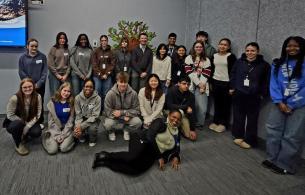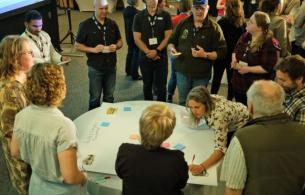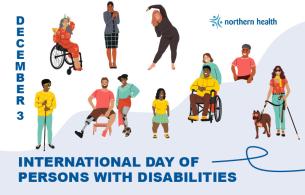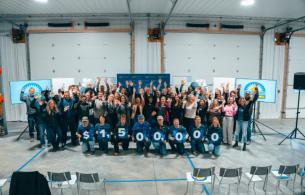Content warning: This story deals with the topic of fertility, infertility, and pregnancy loss which may be difficult for some readers.
Becoming a parent is harder than you’d think. I was under the impression that when the time was right - when I was financially stable, had a good job, extended health benefits, and a willing partner, everything would fall into place. I was wrong. This is also the case for one in six Canadians – who struggle with fertility.
Canadian Fertility Awareness Week (April 20-26, 2025) is a crucial time to shine a light on the struggles and triumphs of those facing fertility issues. In BC, this week serves as an opportunity to educate the public about the causes of infertility, treatments for fertility, as well as the emotional, financial, and physical toll that this journey can take on individuals, couples, and their families. The theme of this year’s campaign is #FertilityUnfiltered – Changing the conversation, one story at a time.
No guarantees
I have always wanted to be a Mom. I couldn’t have imagined that the monumental decision to try to grow my family would be followed by years of struggle, personal research, medical testing, soul searching, hope, and heartbreak. For most of my adult life I’d been actively trying not to get pregnant - driven by the fear that if I let my guard down, it would happen at the wrong time, or with the wrong person. I was led to believe that it might take a few months, but that as soon as all the barriers were removed, I’d be pregnant and holding a baby in no time.
Early pregnancy loss
Within a few months of actively trying, I got pregnant. But a few weeks later, when we were just getting ready to tell family, we experienced our first pregnancy loss. It was devastating and isolating. It was also something that we dealt with in private, as it was so early we hadn’t made any grand announcements or even met with a doctor yet. You don’t typically see a primary care provider for your first appointment until between eight and 12 weeks. This can leave pregnant people feeling vulnerable during that first trimester, as you don’t have a lot of information about what’s going on in there and whether the pregnancy is a healthy one. Miscarriage is far more common than I had thought. In Canada, approximately 15-20% of pregnancies end in miscarriage. Before it happened to me, I had no idea.
Emotional roller coaster
We took some time and then we tried again. For a few years we rode the roller coaster of emotions that accompanied a string of recurrent pregnancies and recurrent losses. I read all the books. I scoured the blogs, the chats, and watched the vlogs looking for tips on:
- How to get and stay pregnant,
- What worked for others who struggled, and
- What was the possible explanation for why it wasn’t working for us.
I had many friends and coworkers who were becoming pregnant, some of whom had more than one baby in that same time frame. Questions from family and friends were emotional. Baby showers at the office were hard. Dealing with my own feelings of inadequacy and failure made it difficult for me to celebrate the success of others. I was jealous, and envious.
Causes of infertility
Fertility issues can be the result of various factors affecting either partner. Common causes include:
- Ovulatory disorders,
- Endometriosis,
- Low sperm count, and
- Hormonal imbalances.
Genetics and age can also play a significant role, with fertility declining as individuals grow older. Lifestyle factors such as stress, smoking, and alcohol consumption can further impact fertility. For same-sex couples, individuals trying to get pregnant on their own, and intended parents pursuing surrogacy, fertility can also have additional complicating factors based on their unique circumstances.
I sought help and advice from my primary care provider – there were many blood and lab tests, internal exams and procedures (e.g. ultrasounds and hysterosalpingograms), and fertility drugs. After six years of trying, we finally got a diagnosis. It was one that determined getting (and staying) pregnant naturally, or with minimal intervention, would be next to impossible. This led us to explore other options, such as fertility treatments.
The financial burden of fertility treatments
We quickly learned that fertility treatments are expensive, with costs for procedures like In Vitro Fertilization (IVF) ranging from $12,000 to $30,000 per cycle. Many people face significant financial strain, especially if multiple cycles are needed. The lack of insurance coverage for other fertility treatments further adds to the burden. People in the North face additional costs due to the limited number of fertility clinics, often needing to travel to larger centres like Vancouver for procedures. I had hoped that we could try a cheaper or less invasive option like a simple surgery or maybe Intrauterine Insemination (IUI), but IVF was the option with the highest likelihood of success – expensive and invasive, and still had no guarantee.
By that time, I was six years older and I’d been pregnant six times without a positive outcome. My body was feeling the toll – both physically and mentally. I didn’t know if I could handle more disappointment, especially when there was such a large price tag attached to it.
Financial support in BC
Luckily, people in BC will soon have some of that financial burden removed, with the new Publicly Funded In-Vitro Fertilization (IVF) Program. One-time funding of up to $19,000, for eligible B.C. residents, is available to those who require IVF on their active path to parenthood. This could have made a huge difference to my own outcomes, and I’m so grateful that others will have access to more options.
Fertility is a journey
I’ve carried this story with me for over a decade now. There comes a time when the decisions you’ve made and the heartbreaks you experienced hurt a bit less, and they’re easier to talk about. Not all fertility stories end with a baby, but they should be spoken, and surviving them celebrated too.
My hope in sharing is that more people will be aware of the struggles and hopefully more compassionate toward those in their lives who are still in the thick of it. It’s important to talk about fertility, challenge stigma, and amplify the voices of those on their fertility journey.
Support is available
To learn more about fertility, infertility, and the treatment options available to you:
- Talk with your primary care provider, or if you don’t have a primary care provider:
- Phone the Northern Health Virtual Clinic at 1-844-645-7811
- Register directly with the Health Connect Registry
- Visit: Infertility - HealthLink BC
- Learn more about financial support for fertility treatment and surrogacy in Canada














Comments